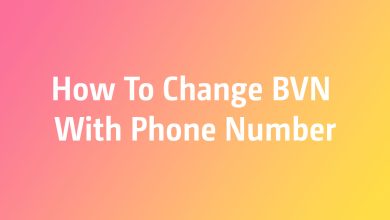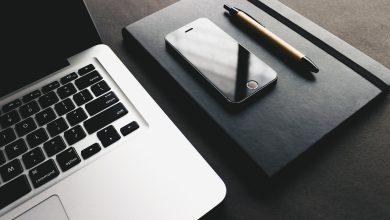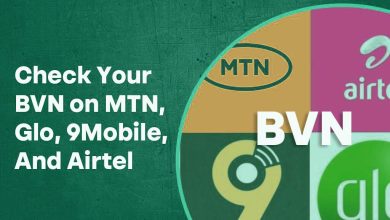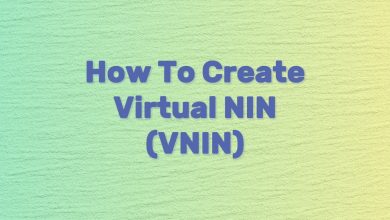Nigerian citizens must have a bank verification number (BVN) to create a bank account or carry out any financial transaction.
The Central Bank of Nigeria (CBN) may collect and preserve a person’s biometric information and financial records in a secure database thanks to the BVN, a unique identification number.
Nonetheless, there are situations in which a person’s BVN may be blocked, preventing them from making financial transactions. A banned BVN may also prevent a person from getting credit, employment, or international travel.
The following blog post aims to explain in-depth how to find out whether your BVN is blocked in Nigeria, along with the causes of blocklisting BVNs, their effects, and what to do to fix the problem.
Contents
Understanding BVN and How It Works in Nigeria
BVNs are important for Nigerian bank customers because they serve as a unique identifier for individuals with bank accounts.
By connecting every bank account a person has and making it easier to identify and track these accounts across banks, BVNs are a main tool in the fight against fraud in the banking sector.
To ensure your financial security, determine whether your BVNs are blocked in Nigeria. You can check your status by visiting the Central Bank of Nigeria’s official website and entering your BVNs. Your account may be subject to limitations on withdrawals and financial transactions if your BVN is blocked, which is a sign that it has been linked to anomalies or fraudulent activity.
Regularly checking your BVNs’ blocklist status can secure your financial interests and keep your account in good standing with Nigerian banks. Thus, Nigerian bank clients who value their financial security above all else must understand the significance of BVNs and know how to check whether they are on the blocklist.
Every bank customer in Nigeria is required to obtain a special Bank Verification Number (BVN). When someone transacts with financial institutions in Nigeria, their BVN is used as an identification. In addition to providing clients with access to their account details and the ability to approve transactions, the BVN serves as an additional layer of security against fraud and identity theft.
In addition, the BVN is connected to every bank account a certain person has, generating an extensive record of financial transactions. An account holder may be “blacklisted” and have their BVN disabled if they do fraudulent acts or don’t comply with particular requirements.
The Central Bank takes this measure to prevent further malicious activity and to protect the financial institution’s and other customers’ interests.
Millions of people in Nigeria can trade securely and effectively daily thanks to the BVN system, which is still essential to the country’s banking industry. In the same way, customers should know what might happen if their BVNs in Nigeria are blocked.
Blocking a customer’s BVNs indicates that the customer has engaged in fraudulent activity or violated the rules that apply to the BVNs.
Due to this, access to banking services and other financial activity in Nigeria may be restricted. Customers should constantly confirm with their banks that their BVNs are in good standing to be safe so that they are aware of it if they get bound.
Understanding how the BVN system works is essential to guaranteeing the safety and security of customers’ financial activities. The system has given the Nigerian banking sector a much-needed boost.
How to Determine Whether Your BVN Is Blacklisted: A Comprehensive Guide
Determining if your Bank Verification Number (BVN) has been placed on a blocklist in Nigeria is crucial as it may restrict your access to specific banking services.
It is crucial to follow a step-by-step method to verify the validity of your BVN if you have ever had concerns about it. The procedure is simple and can be completed remotely or in person. The two methods in question include:
- Visit any bank branch where you registered your BVN.
- Use the Central Bank of Nigeria’s BVN online platform.
Using the online portal to check if your BVN is Blacklisted
On the BVN portal platform, look for the box labeled “Check Your BVN Status” and enter your BVN number inside the box. After that, click the “Check” button to check.
If your BVN is blocked, you will see the following message: “Your BVN is blocked. Please visit any bank for further information.“
A free credit analysis report is also available by visiting the Credit Bureaus of Nigeria website. You can get information about your financial status on the website, including the bank or other financial organization you owe money to and how much you owe.
In Nigeria, you have the option of using the following registered credit bureaus:
- CRC Credit Bureau Limited
- CreditConnection
- FirstCentral Credit Bureau
Finally, visit the National Identity Management Commission’s website to see the list of blocked BVNs and check whether your name appears.
Using Your Bank to Check Whether Your BVN is Blacklisted
You may also use the methods listed below to verify your BVN status:
- Check online by logging into your bank’s Internet Banking Portal. You can view your BVN on the portal dashboard if it is not blocked.
- Enter the general code *565*0# on your phone to check your BVN on any mobile network provider in Nigeria.
You only need a phone with an internet connection, your BVN, and a working phone number registered in Nigeria.
Why has My BVN been Blacklisted?
There are several reasons why your BVN might be blocked. The following are the several reasons why your BVN could be blocked:
- If your account has been flagged for suspicious activity.
- Not being able to pay back your debt.
- Serving as a guarantor for someone who has fallen behind on their loan obligations.
- If a fraudster had obtained a loan using your account.
- Issuing an unsuccessful cheque for more than what is in your bank account.
- If your account is being used for illicit activities, you may also be placed on the Central Bank of Nigeria’s (CBN) blocklist.
What Consequences Does Having a Blacklisted BVN Have?
The following serious consequences could result from a blocked BVN:
1. A fresh loan application rejected
You will not be eligible for a second loan. When lenders examine your BVN status through a background check and find that it has been blocked, they will refuse your loan application, resulting in you not getting any loan.
2. The employment application is rejected
Employing organizations typically do credit reports and background checks on potential hires. Therefore, you might miss out on your dream job due to a blocked BVN, and your chances of having your employment application accepted are decreased.
3. Application for a VISA rejected
You may be unable to travel abroad for better opportunities if your BVN is blocked. Only if you are financially stable will the embassy of the country you visit be able to grant you a VISA. And you will not go there and become another social burden for them.
4. Refused access to receive government benefits
People whose BVN is on a blocklist will not be eligible for some government loans or other benefits.
5. Not being able to create an account with a bank
In Nigeria, your BVN is needed to create a bank account. Consequently, you cannot create a bank account if your BVN has been blocked, and payment will not be available.
How to Take Your BVN Off of the Blacklisted List
Eliminating your BVN from the banned list is essential. Your bank transactions depend on your BVN. By following these procedures, you may securely take your BVN off the banned list and remove the restrictions:
Step 1: Get your credit analysis report by going to any credit analysis reporting agency. The financial institution or bank you owe money to, and the amount owed will be shown in the Credit Analysis Report.
Step 2: Call the bank or financial institution you owe money to as soon as you obtain your credit analysis report. Make sure that your outstanding loan is paid off. If the loan was made using a downloaded application, you must log in and clear it to repay it.
Step 3: Once you have paid off the loan, ask the bank or financial institution who lent you the money for a Clearance Certificate or Letter of Non-Indebtedness. For clarification, provide the bank’s or financial institution’s Clearance Certificate or Letter of Non-Indebtedness to the credit bureau.
The Credit Bureau usually automatically updates your financial status once your loan has been paid off.
Final Thought
It is important to ensure your BVN is not on a blocklist, as this might prevent you from receiving payments, opening a bank account, or getting a loan.
To prevent any unanticipated challenges, it is recommended that you take preventative measures and often check the status of your BVN. In addition, having a banned BVN in Nigeria might restrict your access to banking services and result in serious financial hardship.




